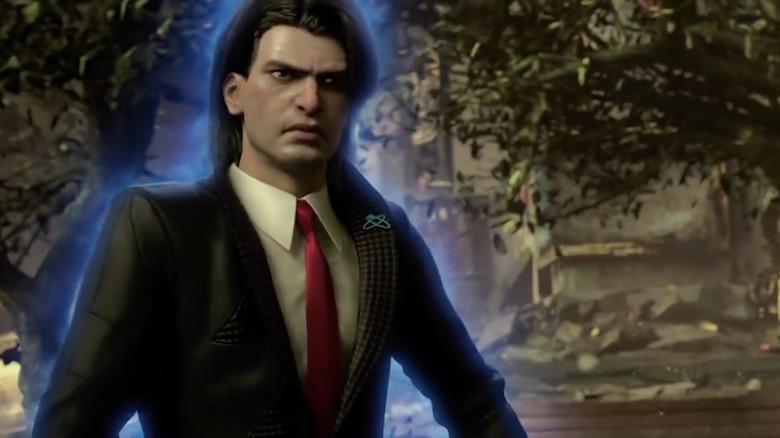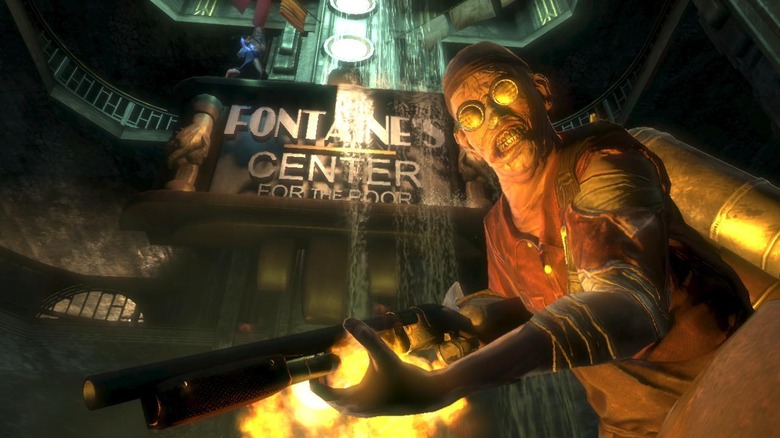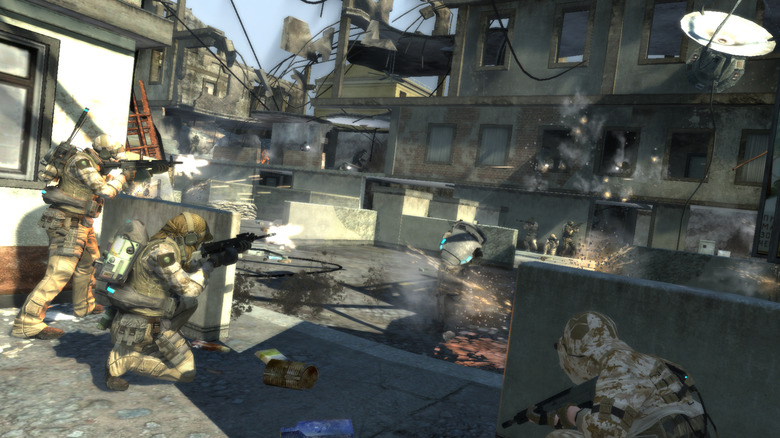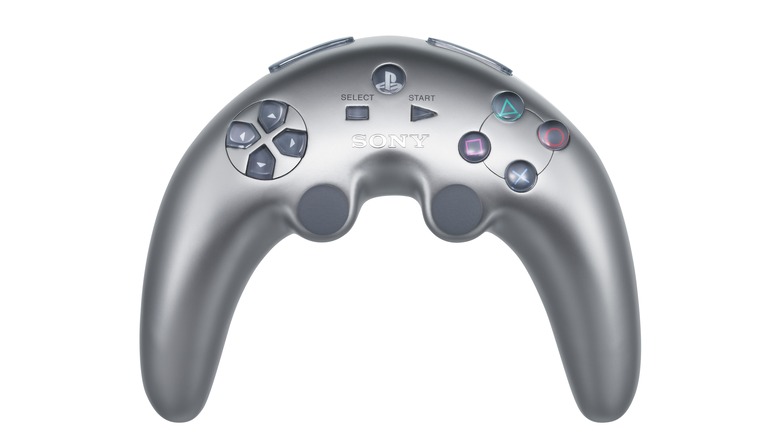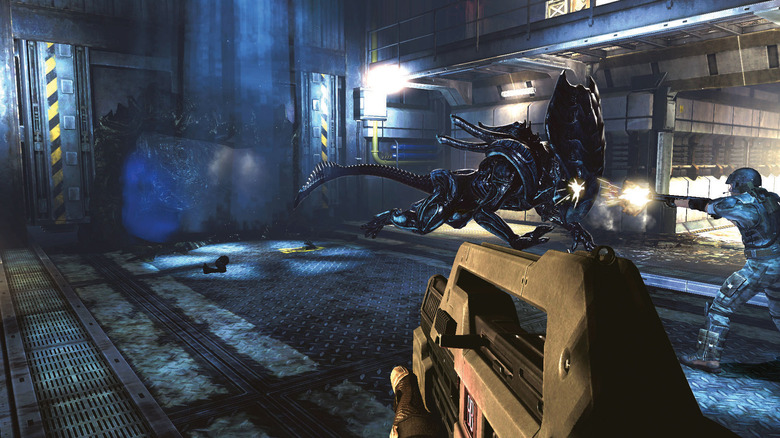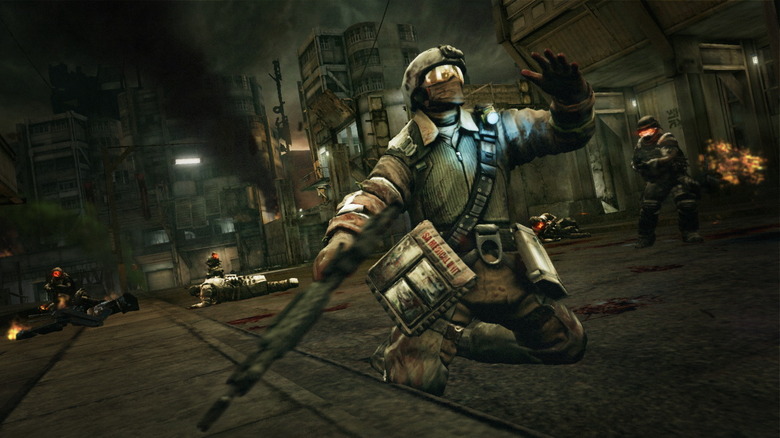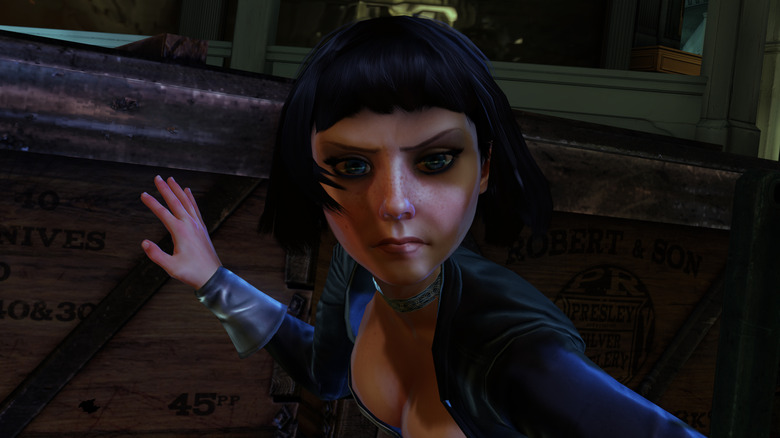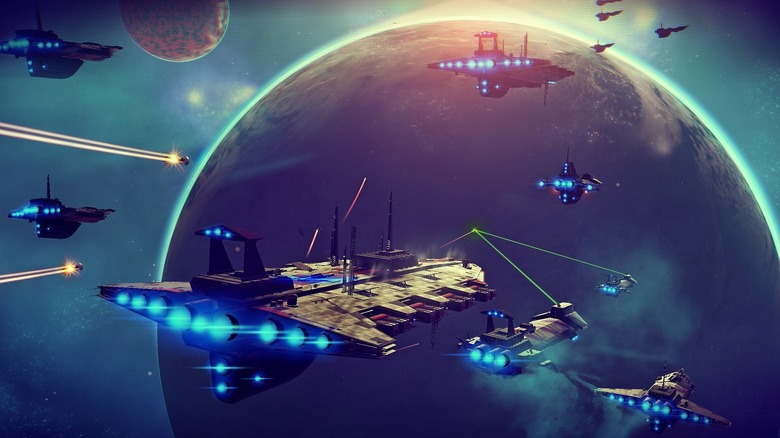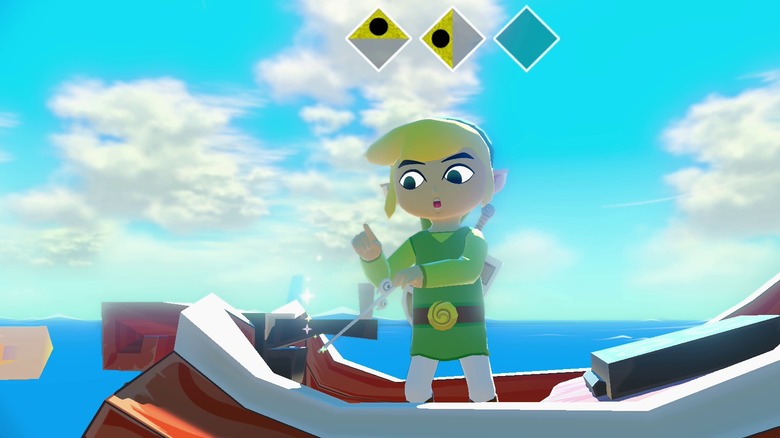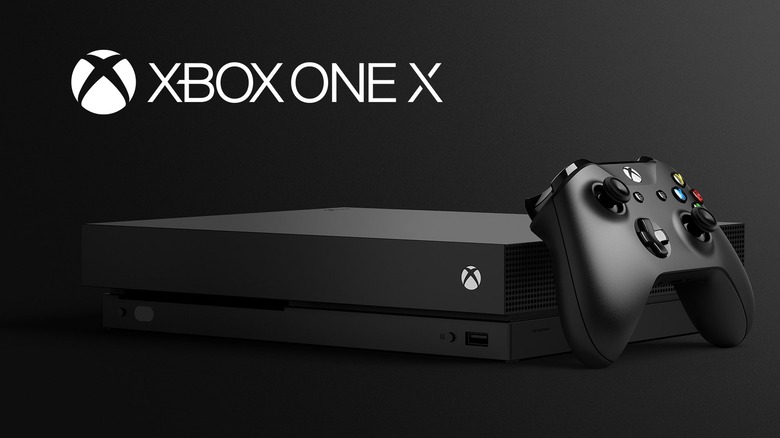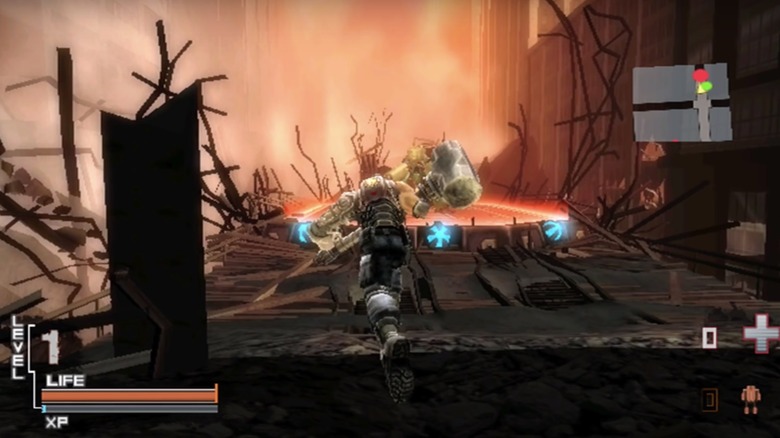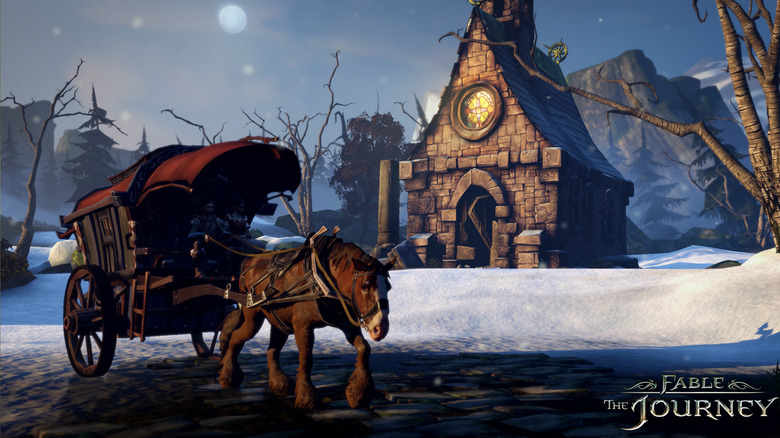E3 Promises That Were Total Lies
On May 11, 1995, the Los Angeles Convention Center hosted the first ever Electronics Entertainment Expo, more commonly known as E3. Despite some heavy competition from the Consumer Electronics Expo, E3 quickly became the go-to video game event during the summer, as companies like Nintendo, Microsoft, and eventually Sony gravitated toward it as it grew over the years. Eventually, the annual convention became a staple of the gaming world and has been home to some of the biggest announcements in the industry's history.
At a convention like E3, it's important for companies to appease not only fans, but also the media and corporate big wigs. That's why developers and publishers often make high-profile announcements like console debuts, early looks at popular franchises, and in recent years, the occasional surprise same-day launches. However, sometimes these companies go too far, making lofty promises that never come to fruition. So, let's take a look at some of the biggest E3 promises that turned out to be total lies.
BioShock Vita (2011)
2011 marked a banner year for Ken Levine, Irrational Games, and the BioShock franchise. At June's E3, the acclaimed developer ceremoniously held up a PlayStation Vita and declared that the series would make its way to the handheld at some point soon. Levine went on to mention that this wouldn't be a downscaled BioShock Infinite or some kind of port, but that it would be a core experience "built from the ground up."
Unfortunately, that never happened. BioShock for the Vita never became a reality, and a lot of people were upset about it. In 2014, a mere three years after he famously held up that Vita system, Levine disbanded Irrational Games, and the franchise's handheld title immediately went into limbo. To date, there's nothing to prove that this title ever really existed, and it certainly doesn't exist now. Vita fans will never have a BioShock experience to enjoy, and that's a shame.
Wii U's upcoming games (2011)
At E3 2011, the Nintendo crew unveiled the Wii U to much confusion. Was it a new console? Was it simply a controller? Most importantly, could you play it on the go? Despite the answer to the latter being a big fat "no," there was still a lot to love about the predecessor to the Nintendo Switch. Yet, even with all the good, there was some bad, and a great deal of that bad can be traced back to that initial announcement.
At the E3 reveal, Nintendo played a sizzle reel, which featured seven games that were meant to be massive parts of the Wii U rollout. However, only three of those games actually made their way onto the console. During that reel, the acclaimed developer showed off Darksiders 2, Tekken, Metro Last Light, Ghost Recon Online, Ninja Gaiden 3, Dirt, and Aliens: Colonial Marines. Only Darksiders, Tekken, and Ninja Gaiden actually made it to the platform, which reminded gamers that not everything promised leads to actual results. It's a big part of why the Wii U flopped.
PS3's original specs (2005)
There's always something exciting about console reveals during the Electronics Entertainment Expo, and Sony's PlayStation 3 announcement was no exception. However, this reveal was likely the most egregious, dishonest look at a new console generation that's ever been caught on camera. During Sony's announcement, the company discussed a wide array of features that this new system would have. Two HDMI ports? Yeah, the PS3 would have that. Three LAN ports? Absolutely, the new console would have them. Boomerang controllers? Sure, why not.
At E3 2005, Sony simply went too far. Phil Harrison touted all these features and essentially positioned his word as law. Game demos were shown in an unrealistic light: just look at the Killzone 2 and Motorstorm videos to corroborate that. And, nearly everything changed from that conference to the 2006 console release, and that's why people still regard the announcement as one of the biggest lies in E3 history.
Aliens: Colonial Marines (2012)
False advertising certainly isn't exclusive to the video game industry, but there have been some glaring examples of it throughout the years. Few were more blatant than Gearbox Software's Aliens: Colonial Marines. Shown off at multiple game conventions over its six-year development cycle, including a big showing at E3 2012, the Borderlands developer had gaming fans hyped up for this first-person shooter. Via a demo, the industry got a look at the gorgeous environmental effects, dynamic lighting, and massive detail that really immersed you in the Aliens world.
Yet, while the demo shown off to the world at E3 and subsequent conventions was the product of a massive amount of work, it looked nothing like the final game. Upon release, Colonial Marines received terrible reviews and was met with ire from video game fans all over the world. People panned it for looking nothing like the demos that Gearbox and CEO Randy Pitchford showed off, going as far as to file a lawsuit against the company as well as publisher Sega.
Killzone 2's "real gameplay" trailer (2005)
During the same PlayStation 3-centric announcement at E3 2005, Sony showed off a trailer for Killzone 2, positioning it as a flagship title for the upcoming console. To illustrate just how powerful the next generation would be, the trailer featured about two minutes of incredible, cinematic footage that was passed off as actual gameplay. It was a phenomenal trailer, one that gaming fans talked about long after the conference ended, but some had a hard time believing that it was based off of real gameplay footage. Three years later, when Killzone 2 finally came out, the final product looked pretty similar to the quality shown in the trailer, but still not quite as jaw-droppingly good as that 2005 video.
Fast forward to 2017, when NoClip — a crowd-funded documentary company led by Danny O'Dwyer — released a doc on the making of Horizon: Zero Dawn. Guerilla Games, the developer behind both Horizon and Killzone, helped shed some light on that controversial video from more than a decade ago. Executive producer Angie Smets said that the trailer wasn't real gameplay and was meant to be a "vision video" about what next-gen games could potentially look like. It was originally "meant for internal use only" but ended up at E3. So, that "real gameplay" trailer that wowed the masses turned out to be "bullshot."
Bioshock Infinite: Elizabeth's summoning powers (2011)
From the beginning, it was clear that BioShock Infinite had ambitions of being remembered and revered for years after its release. In many ways, the finished product achieved those lofty goals, but it also failed an audience that expected more from the game — expected more of what it saw during an exciting E3 2011 presentation. On stage during this event, Irrational Games showed off a fantastic early look, one that included a much more sophisticated version of Elizabeth.
In this version of Infinite, Elizabeth's supernatural summoning powers offered much more flexibility in terms of gameplay than players found in the final release. Her powers allowed her to summon a multitude of objects and weapons to help solve problems, finish fights, and get protagonist Booker DeWitt out of sticky situations. While her summoning powers stayed in the release version, they were way less exciting and interesting than what was laid out during the early demos. This, along with many other portions of the game, proved to be too ambitious. Luckily, the end result still turned out to be a solid game.
No Man's Sky (2014)
It's no secret that No Man's Sky was the highlight of E3 2014. Hello Games and Sean Murray's lengthy presentation at Sony's press conference stole the show and generated so much hype for what looked like a brand new type of space exploration game. During the exciting look at the PS4 exclusive, Murray described the game as "... a procedural universe. It's infinite, and it's one that everyone can share." The demo showed off massive space stations and fleets of ships, space battles, complex creatures that interact with environments, planetary physics, and so much more. It looked like nothing the gaming world had seen before.
In 2016, No Man's Sky released to much disappointment, as so many of the features promised didn't make it into the final game. Everything listed above was missing from the game. There were no massive space battles, no meaningful interaction with creatures, and no interaction with other players. People were angry, to say the least. Hello Games quickly became inundated with angry social media interactions, YouTube videos pointing out Murray's lies, and criticism from throughout the games media. In the three years since, the indie developer has righted many of the wrongs, but no one will ever forget that misleading press conference in 2014.
The Legend of Zelda for GameCube (2001)
Nintendo has made some mistakes throughout the years at E3; some could argue that this is why they now elect to release Nintendo Directs during the show instead of doing massive press conferences. The gaming juggernaut has certainly made people mad at times, especially after promising things that simply don't come to fruition. Take The Legend of Zelda for example. During the GameCube reveal at E3 2001, Nintendo showed a highlight reel of multiple games including a new Zelda adventure that looked like the logical upgrade to the N64's Ocarina of Time and Majora's Mask. Fans were extremely excited, especially since this lined up with the footage shown at Japan's Space World 2000.
What was baffling was that, less than two months after E3 at Space World 2001, Nintendo showed off a completely different Zelda adventure that left people scratching their heads. This cel-shaded, cartoony game looked nothing like the mature, gorgeous experience that fans saw not long before. The vocal outcry was heard around the internet, something that wasn't nearly as common as it is today. Nintendo duped it's audience, but luckily for them and for the fans, The Legend of Zelda: Wind Waker, released in 2003 in North America, turned out to be fantastic.
Project Scorpio's VR support (2016)
Project Scorpio was a big move for Microsoft, as it would usher in a more powerful version of its current Xbox One console. A smart but risky move, Microsoft unveiled this enhanced, more expensive console during its press conference at E3 2016. Formally named the Xbox One X, the console would have the most powerful GPU ever put into a console. Its performance would allow games to render at true 4K resolution at 60 hertz. Revealed alongside the newly designed Xbox One S, there was little doubt that the X was designed for hardcore gamers that were ready for a powerful gaming experience.
Microsoft went on to say that the One X would support virtual reality. While never mentioning which VR headsets would work with the console, the company did drop the info that the VR version of Fallout 4 would release for the Scorpio. It's now 2019 and there's no sign of VR. In fact, it looks as though the company has abandoned the project for this current generation. The chief marketing officer for Xbox said as much in a 2018 interview, so consider what was heard at E3 a big lie.
Project H.A.M.M.E.R.: a darker Nintendo experience (2006)
Originally announced at E3 2006 alongside the Nintendo Wii, Project H.A.M.M.E.R. was designed as a darker, more mature gaming experience for the upcoming console. A story-driven action title, Nintendo had big plans for the game, one of which included the main character wielding a massive hammer as its main weapon — something that surely would have been fun with motion controls.
Unfortunately, the game fans were promised never came close to release. After an overhaul due to the determination that it simply wasn't fun to play, the game went through an unannounced redesign. With a more family-friendly, "cute" art style, one that fit the Wii aesthetic, Project H.A.M.M.E.R. became known internally as Wii Crush. The revamp did nothing to help the project move forward, and eventually, Nintendo fired the company leads and canceled the game in 2009, disappointing the more hardcore fans of the console.
Fable: The Journey isn't on rails (2011)
If there's any one man in the gaming industry synonymous with lies, it's Peter Molyneux. Known for his hyperbolic nature, lofty promises, and being a PR nightmare, the famous developer and creator of the Fable series has made fans angry for decades. He once promised that Fable players would have the ability to marry and have children in the first game, something that didn't happen (it was added to the second game, though).
At E3 2011, Molyneux helped announce Fable: The Journey, a new experience in the series designed specifically for the Kinect. First shown behind closed doors, the Lionhead Studios founder promised the media that this game wasn't on rails, despite everything shown pointing to the contrary. The two core gameplay elements — navigation via horse and cart, shooting stages — made for a completely on-rails experience both in that demo and in the finished product. Whether Molyneux just hated describing his game that way or the game changed from demo to release, it was clear that he lied at E3, and it's likely most people weren't surprised.
Phantom Dust reboot (2014)
First released in 2004 for the original Xbox, Phantom Dust — a real-time strategy-action game — had a small but loyal following. It certainly gained cult classic status, but most people were completely surprised when Microsoft revealed a reboot of the title at E3 2014. Included in those surprised by the reveal were the developers at Darkside Games, the team tapped to work on the game. See, at the time of that announcement, the Darkside team was in the early stages of development, but nowhere near prepared to show off the game. What Microsoft put together for audiences was a pre-rendered trailer that no one at the developer actually worked on.
Passed off as a trailer representing the game Darkside was working on, this reveal generated hype throughout E3, despite the dev team's lack of involvement. Less than a year later, Microsoft canceled Phantom Dust, leaving the developer in the dust. Darkside shuttered its doors. Meanwhile, Microsoft continued to say that the project would move forward, but didn't give specifics. Finally, at E3 2016, the company revealed that the reboot had shifted to a remaster for the Xbox One, essentially going back on its promise from just two years earlier.

